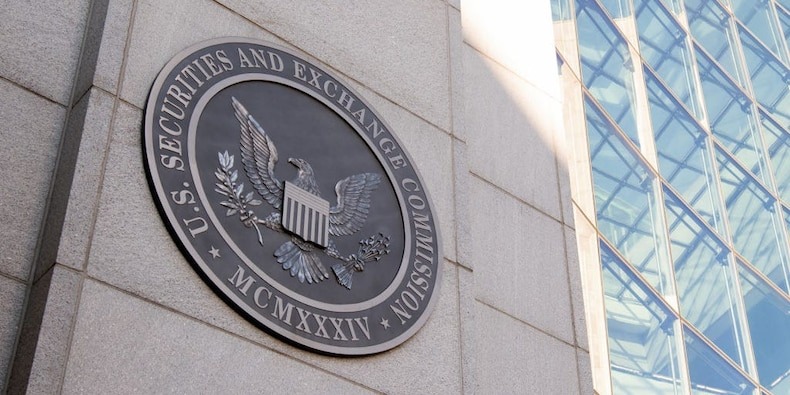
SAUL LOEB/AFP via Getty Images
- The SEC is seeking voluntary information from Wall Street banks on SPAC deals, according to Reuters.
- The regulator has asked the banks for information on deal fees, volumes, and internal protocol.
- A Reuters source says this could be the start of a formal investigation by the SEC’s enforcement division.
- Sign up here for our daily newsletter, 10 Things Before the Opening Bell.
The US Securities and Exchange Commission has begun an inquiry into Wall Street’s blank-check company craze by seeking voluntary information, Reuters reported on Thursday.
The regulator recently sent correspondence to Wall Street banks, requesting details on how underwriter banks manage the risks involved with special-purpose acquisition companies, Reuters said, citing four sources.
SPACs are shell companies known for being set up with the sole purpose of raising money through an IPO to ultimately acquire another company. More than $95 billion has been raised across 294 SPAC IPOs so far in 2021, according to SPACInsider.com.
The inquiry is not being considered as a formal investigation. But the fact that the banks received requests from the SEC’s enforcement division indicates this could be the start of a higher level inquest, a source told Reuters.
More specifically, the regulator is looking for information on fees, volumes and the internal protocol used to control the deals, as well as other compliance-related details. Its concerns seem to be centered around due diligence and the heightened possibility of insider trading when a SPAC goes public and announces an acquisition target, according to the report.
“Wall Street’s biggest banks are being asked: ‘what’s going on?'” a source told Reuters.
Earlier this month, the SEC warned investors about the risks involved with celebrity-backed SPACs and said it’s “never a good idea” to invest in one simply because someone famous is associated with it. The Commission outlined two key differences investors should be wary of between SPACs and IPOs.
Firstly, SPAC sponsors end up acquiring equity in the firm at “more favorable terms” than investors in a typical IPO. Seconly, the sponsors may have conflicts of interest when it comes to the SPAC’s success, meaning early investors could have different economic interests from common shareholders.













